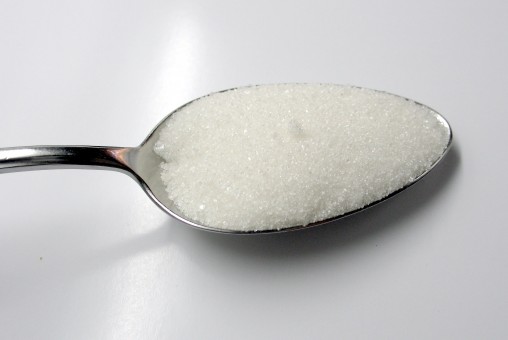What is it about sweets that is so appealing? From adults to children, there’s something about cookies, cakes and candies that we crave. Ever notice how children are enthralled by dessert? Bet you’ve never seen them have the same wide-eyed reaction to a piece of fruit.
Sugar in delicious treats is what draws people of all ages to them, but there are health threats for everyone when it comes to over-consumption. For children, too much sugar can lead to tooth decay, obesity and nutrition deï¬ciencies.1
There is some good news: According to MayoClinic.com, Children consumed less added sugar in 2012 than they did in 2000. But the bad news: Children are still consuming more sugar (16 percent of total calories) than they should for good health (5 to 15 percent recommended by the Dietary Guidelines for Americans).2
What Is Sugar?

Sugar is an ingredient in almost everything at the supermarket, at least when it comes to processed foods. Items like bread, soft drinks and ice cream all contain sugar. There are also numerous names for “sugar”: white sugar, brown sugar, raw sugar, corn syrup, high fructose corn syrup, sweetener, molasses, crystal dextrose and more.3
The American Heart Association says each gram of sugar contains 4 calories so if a food as 15 grams of sugar per serving, it contains 60 calories from the sugar. Look at the total calories in that item and 60 out of the total is what we call “empty calories,” meaning there are no nutritious beneï¬ts.
The Risks
Too much sugar intake can lead to the following issues in children:
- Cavities: Excessive sugar causes tooth decay, the most chronic childhood disease in America according to the American Dental Association. Acid is produced when a child’s mouth comes in contact with sugar and a process begins, leading to a cavity. Sucking on lollypops, eating gummy candy and drinking sugary soft drinks all increase the risk of tooth decay.
- Obesity: Excessive sugar consumption can put children at risk for obesity and obesity-related health problems. Sugary drinks have been noted as one of the biggest contributors to childhood obesity, with a serving of a sugar-sweetened drink increasing the risk of obesity by 1.6 percent.
- Poor Nutrition: There are no nutrients in sugar so when a child consumes sugary foods, they’re not receiving the vitamins and nutrients needed for growth and development. These are the “empty calories” which can result in nutrition deï¬ciencies.
Tips To Avoid Sugary Foods

In 2009, the American Heart Association said that children should consume no more than three-to-eight teaspoons of added sugar per day.4 Sugar is everywhere and since it isn’t necessary to eliminate sugar completely from a child’s diet, it’s important to do your best to moderate it. Here are some great tips:
- Limit the number and portion size of treats and desserts (or perhaps offer a healthier “treat” instead like fruit, applesauce or nuts)
- Opt for whole-grain cereals without added sugar
- Instead of sugary drinks, give your child water or milk. If a child insists on juices with a lot of sugar, water them down.
- Check ingredients on items you buy and avoid high sugar gram counts and high fructose corn syrup
- Make sure your child brushes twice a day and flosses once a day to protect against cavities
References
- 1 http://healthyeating.sfgate.com/dangers-sugar-consumption-children-5246.html
- 2 http://www.mayoclinic.org/healthy-living/nutrition-and-healthy-eating/expert-blog/kids-and-sugar/bgp-20056149
- 3 http://www.mayoclinic.org/healthy-living/nutrition-and-healthy-eating/expert-blog/kids-and-sugar/bgp-20056149
- 4 http://www.sheknows.com/health-and-wellness/articles/826563/how-is-sugar-hurting-your-kids

















